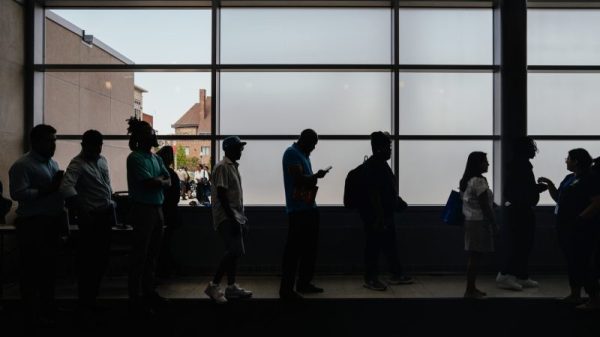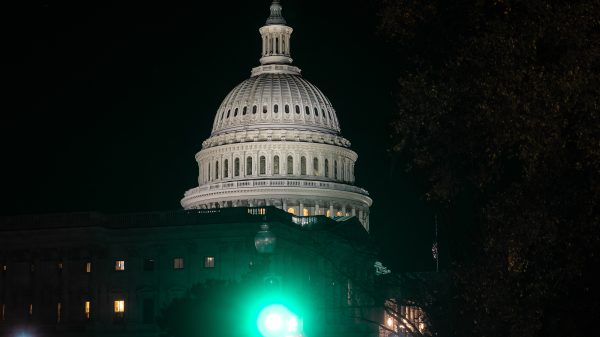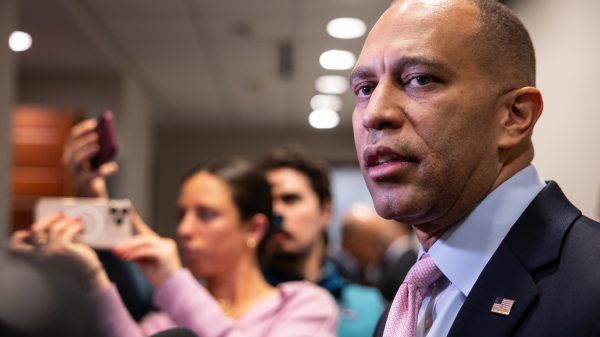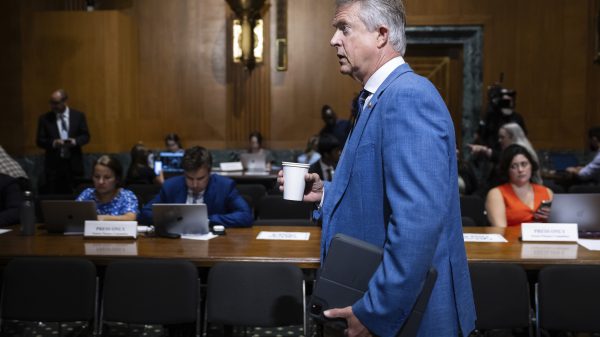Speaker Mike Johnson said he told Senate Majority Leader John Thune he strongly disagreed with the Senate GOP’s inclusion of a provision in the government funding package allowing senators to sue if their electronic records are obtained without their knowledge.
“I don’t think that was the smart thing to do,” Johnson told reporters Wednesday night.
Of Thune, Johnson added, “I think he regretted the way it was done, and we had an honest conversation about that.”
The House voted late Wednesday on legislation to end the longest government shutdown in history that included a continuing resolution to fund federal operations through Jan. 30 and a “minibus” of three full-year appropriation bills for Department of Agriculture and the FDA, the Department of Veterans Affairs and military construction projects and the legislative branch.
Thune personally negotiated the inclusion of language in the legislative branch funding measure that would allow senators to receive a $500,000 payment if federal law enforcement obtains their electronic data and doesn’t notify them.
It was a direct response to recent revelations that eight Republican Senators had their phone records subpoenaed during former special counsel Jack Smith’s probe into President Donald Trump’s efforts to overturn the 2020 election.
But even though Republicans on both sides of the Capitol are irate over Smith’s actions and want to haul Smith before lawmakers to testify, House Republicans were caught off guard by the provision and are now seeking to have it reversed.
Johnson announced Wednesday afternoon the House would vote on legislation next week to overturn it; it’s expected to pass with wide bipartisan support.
Separately, House Judiciary Committee Chair Jim Jordan will hold a vote in his panel on a bill that would create stricter rules for the courts to approve non-disclosure orders often sought by federal law enforcement officials when conducting investigations. It passed the House in the previous Congress.
Jordan told reporters Wednesday there was no justification for Smith to seek a non-disclosure order when obtaining the senators’ phone data around the date of the Jan. 6, 2021 attacks on the Capitol.
Still, he did not appear to have an issue with clawing back the related provision in the government funding bill.
“Frankly, I would just say that we should pass laws for Americans, not for any special category,” he said.











